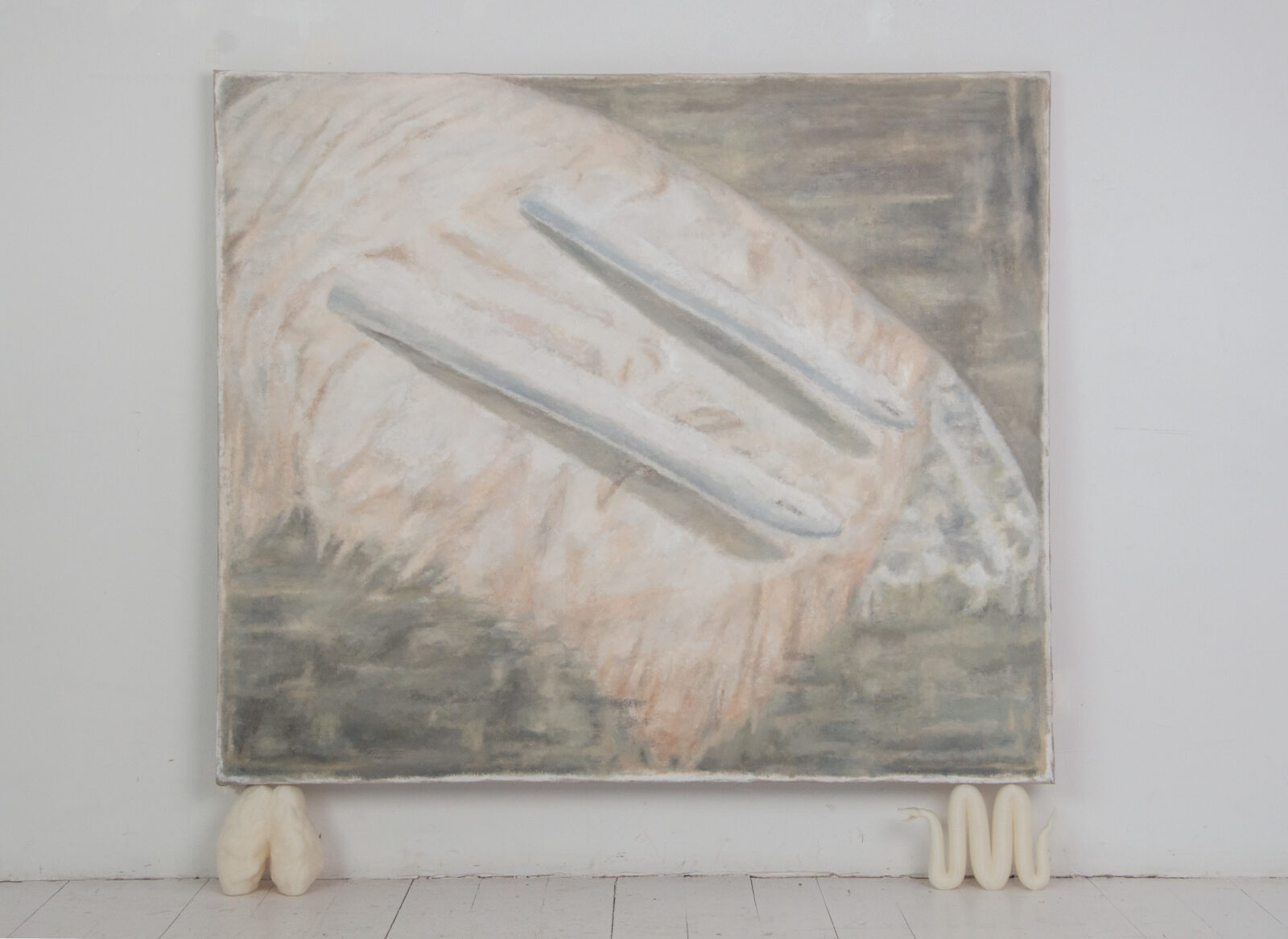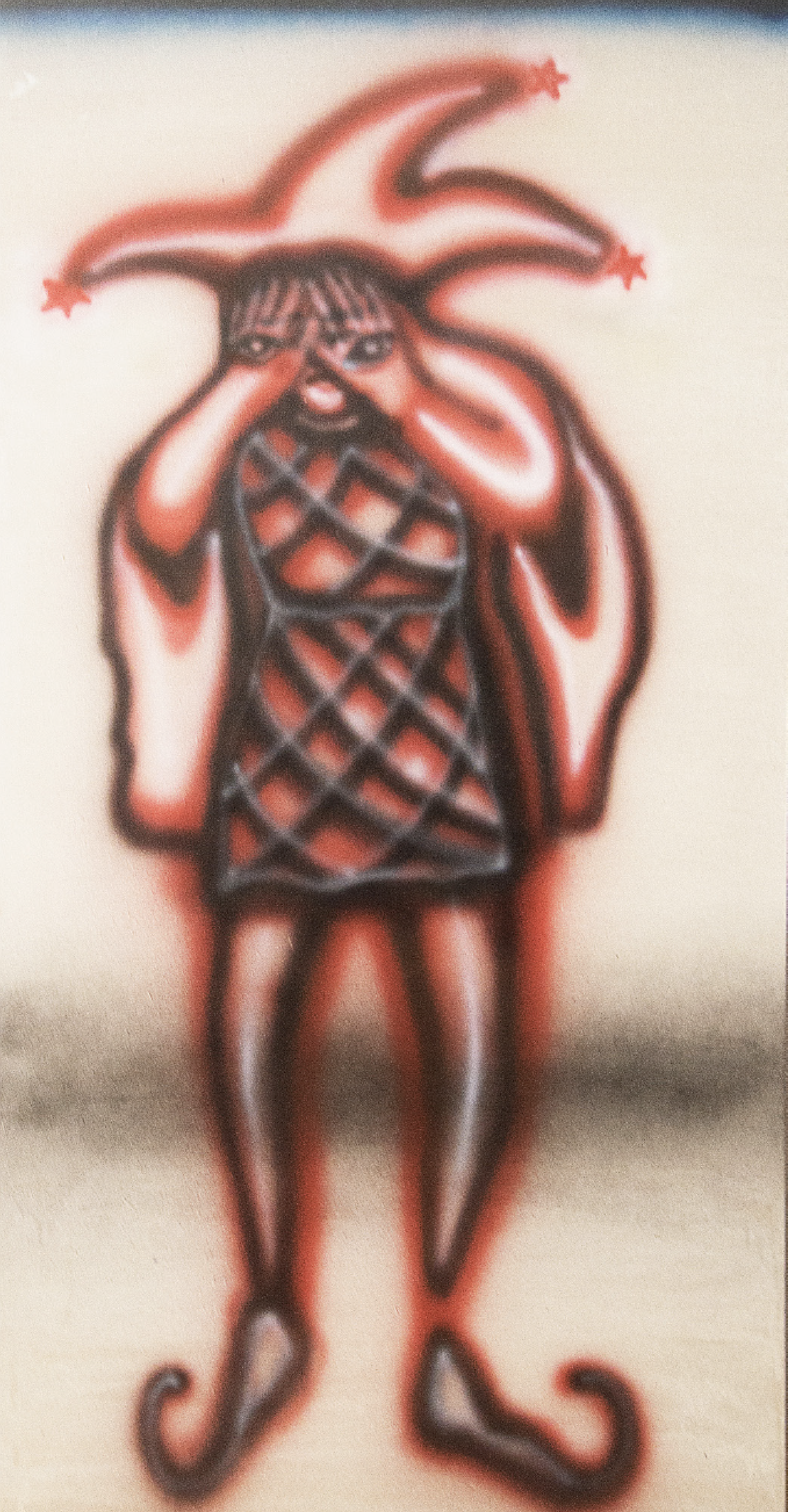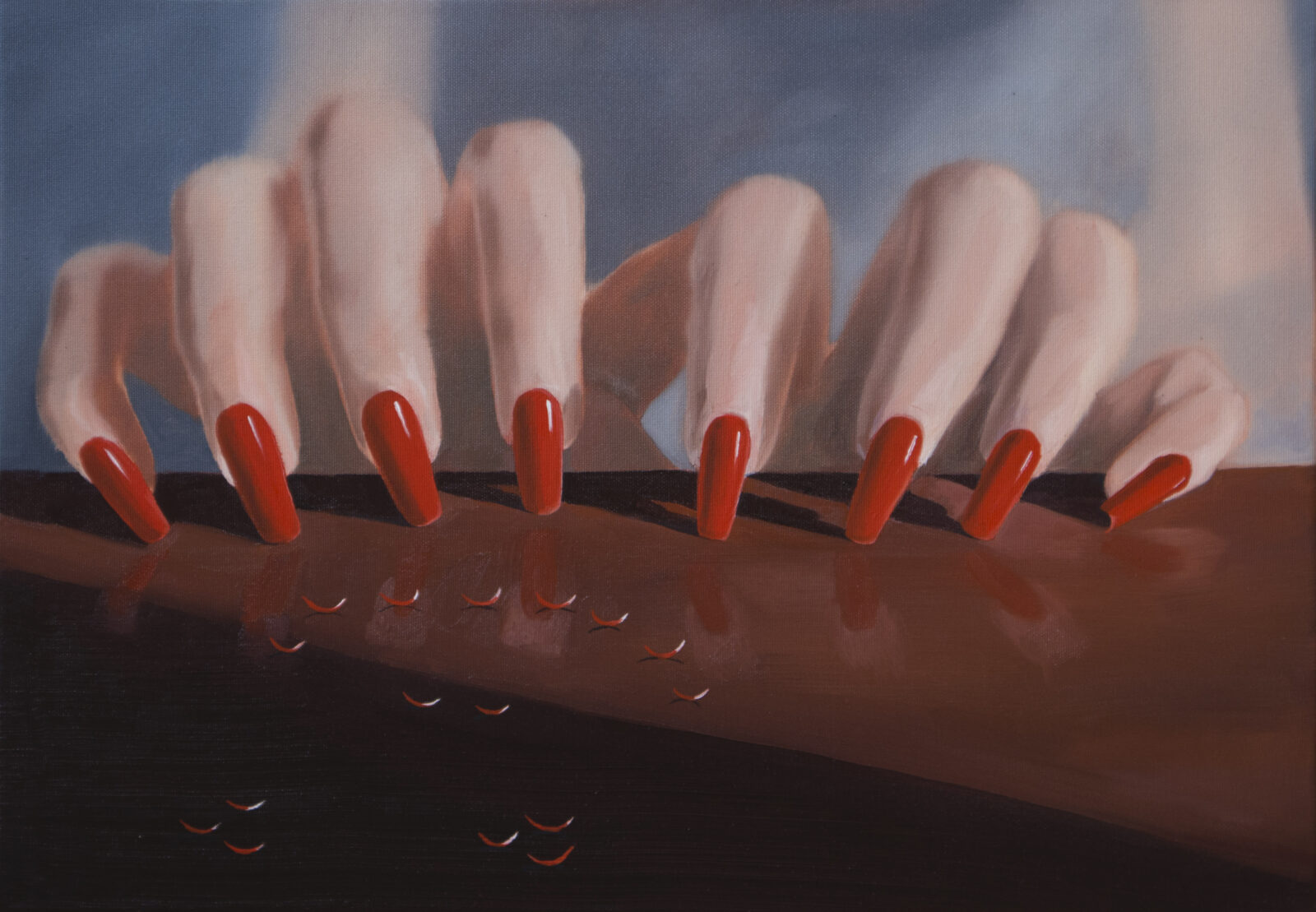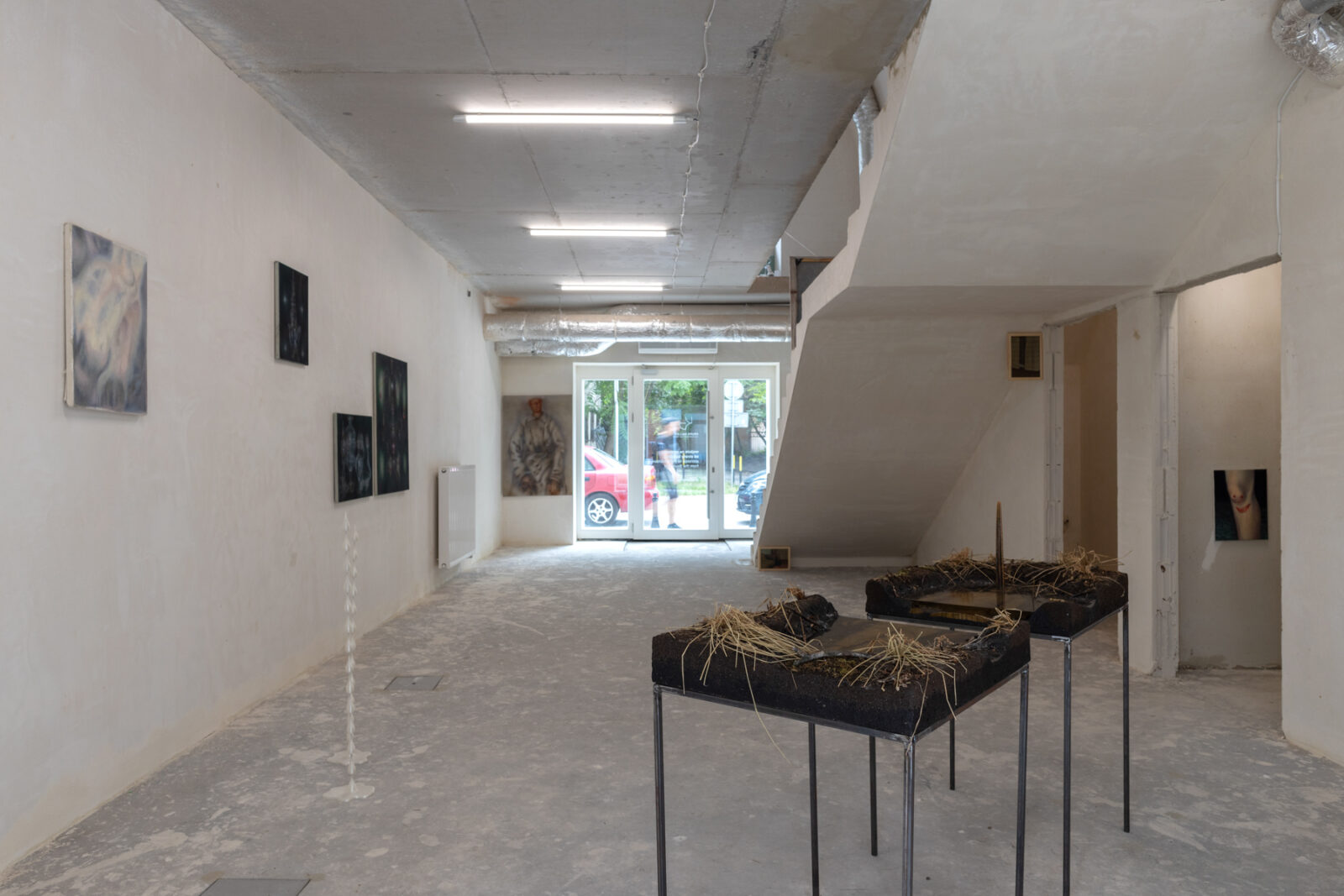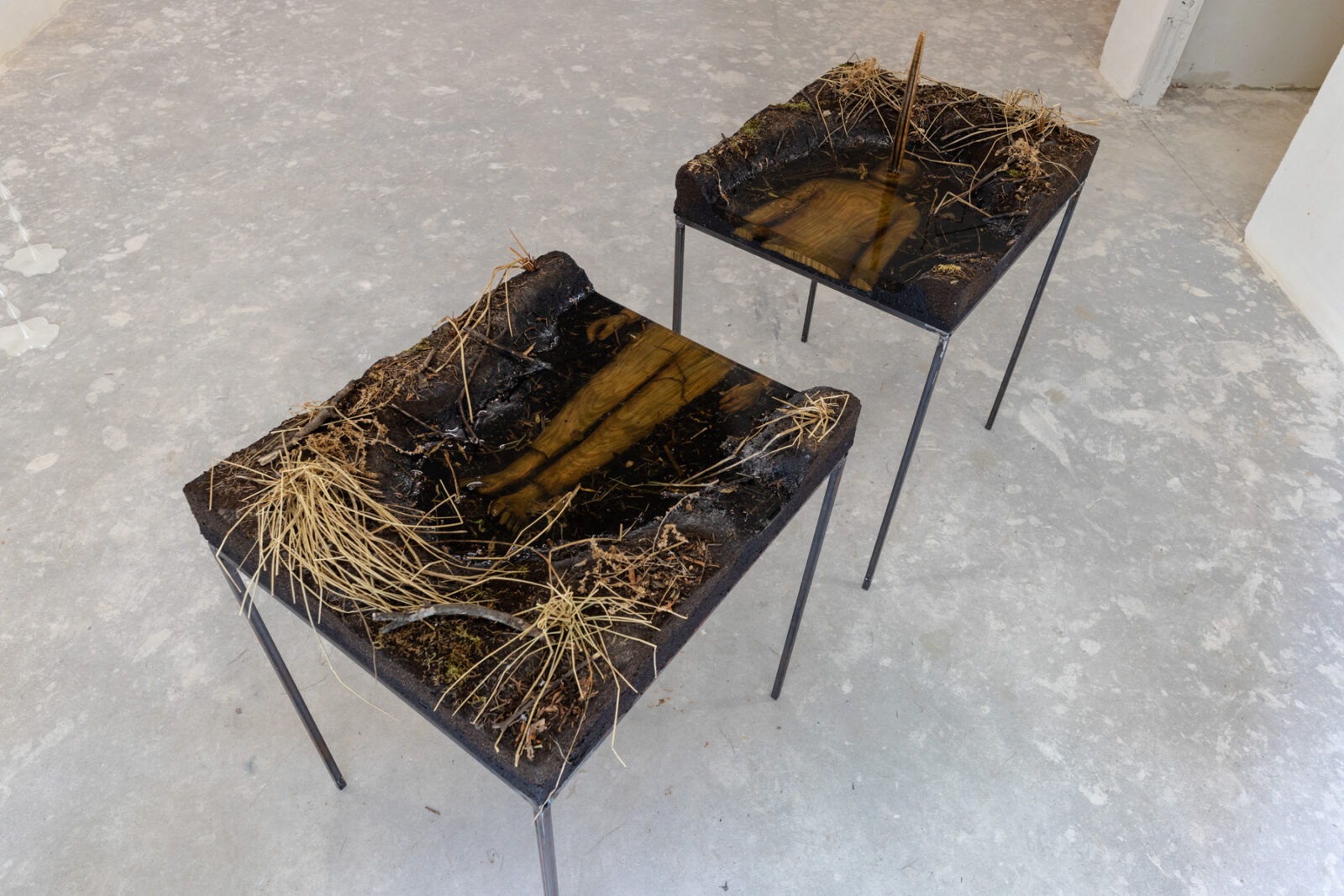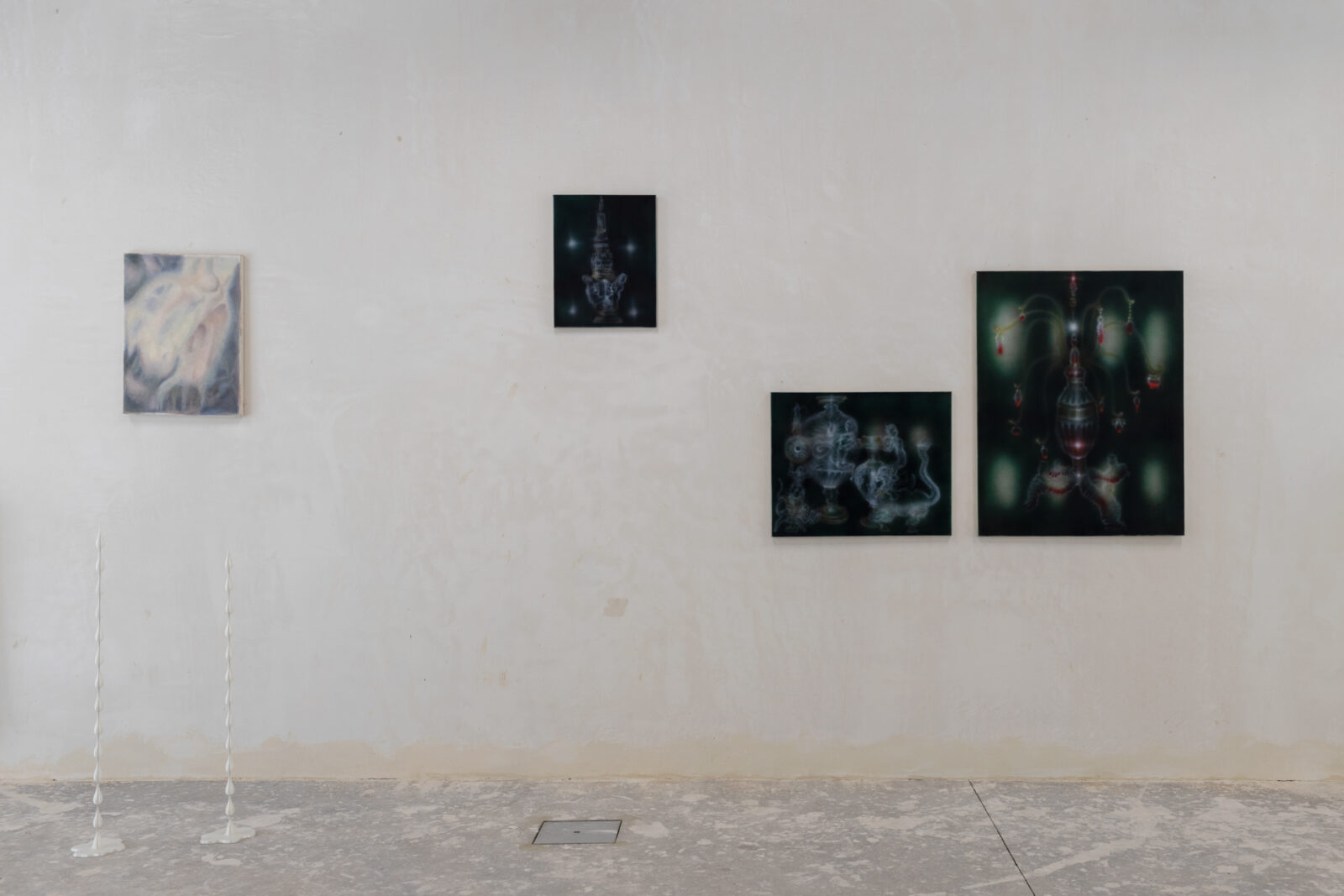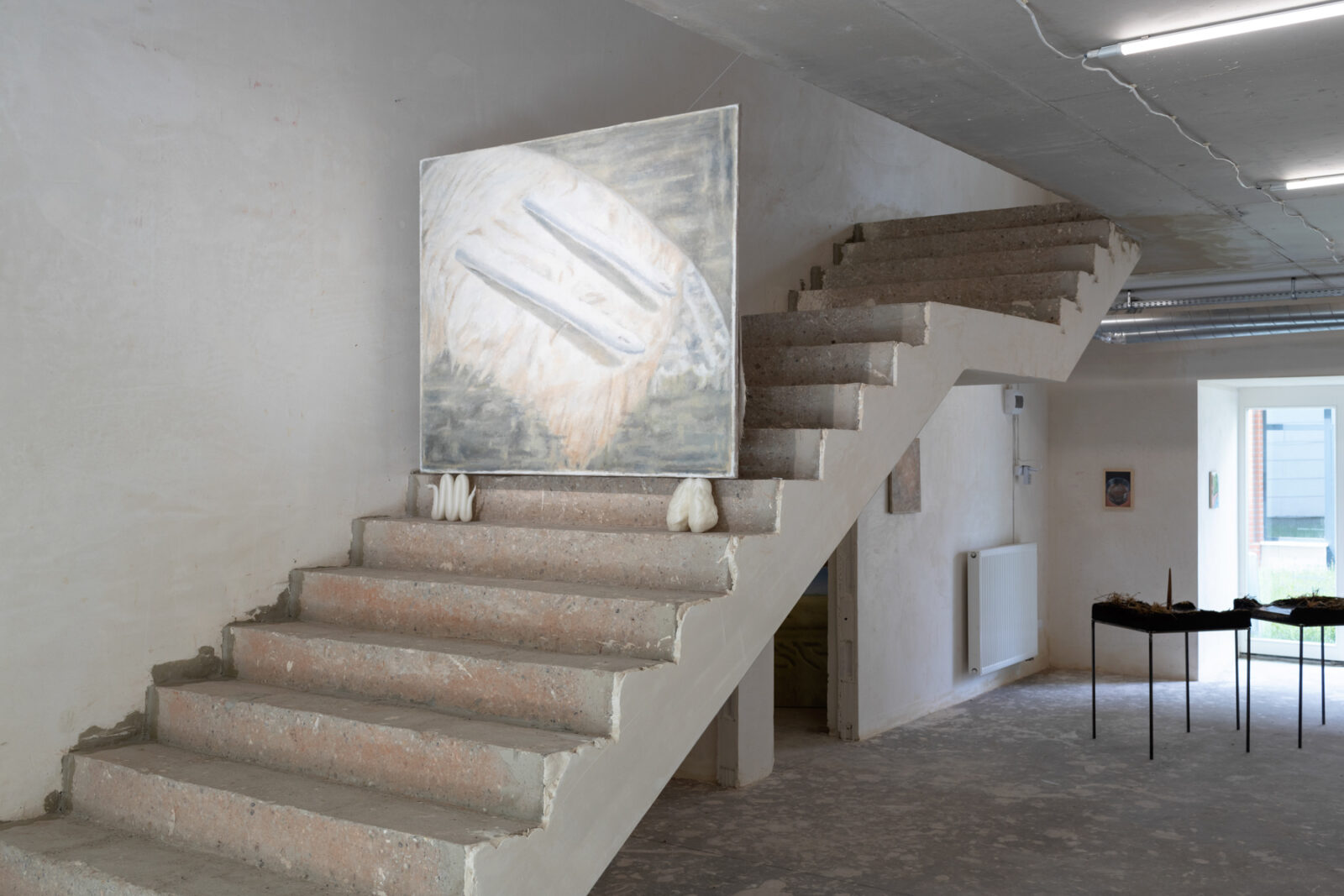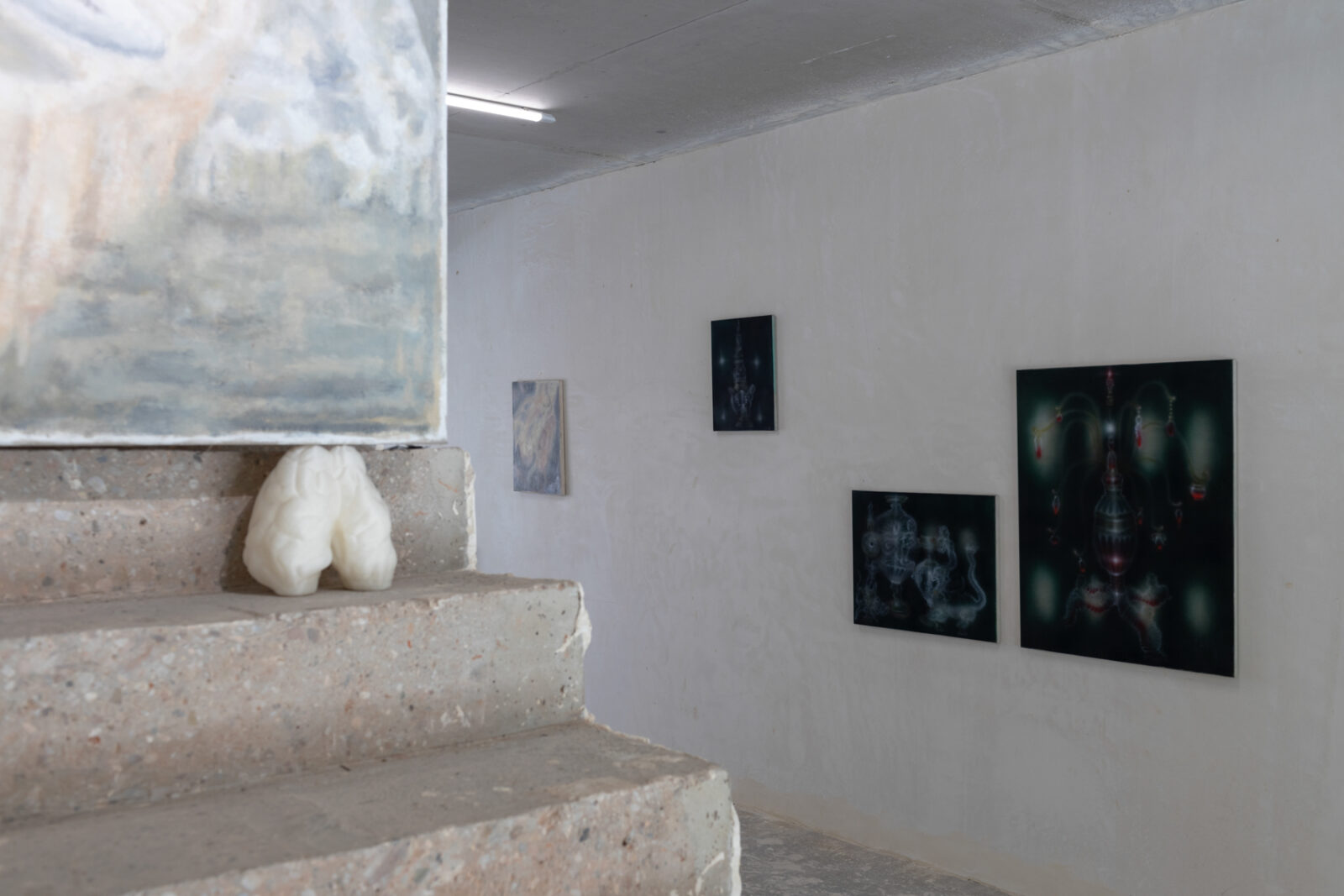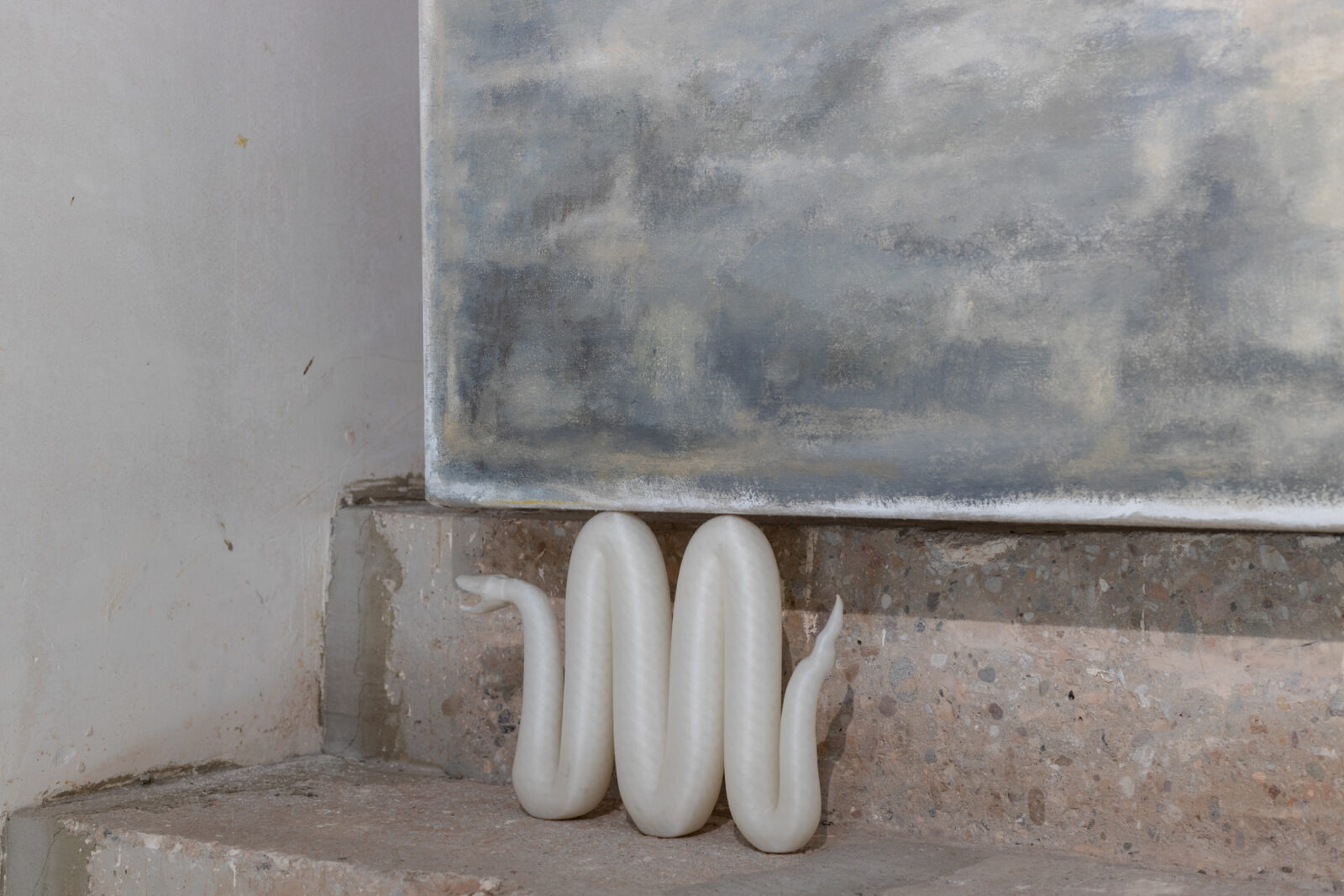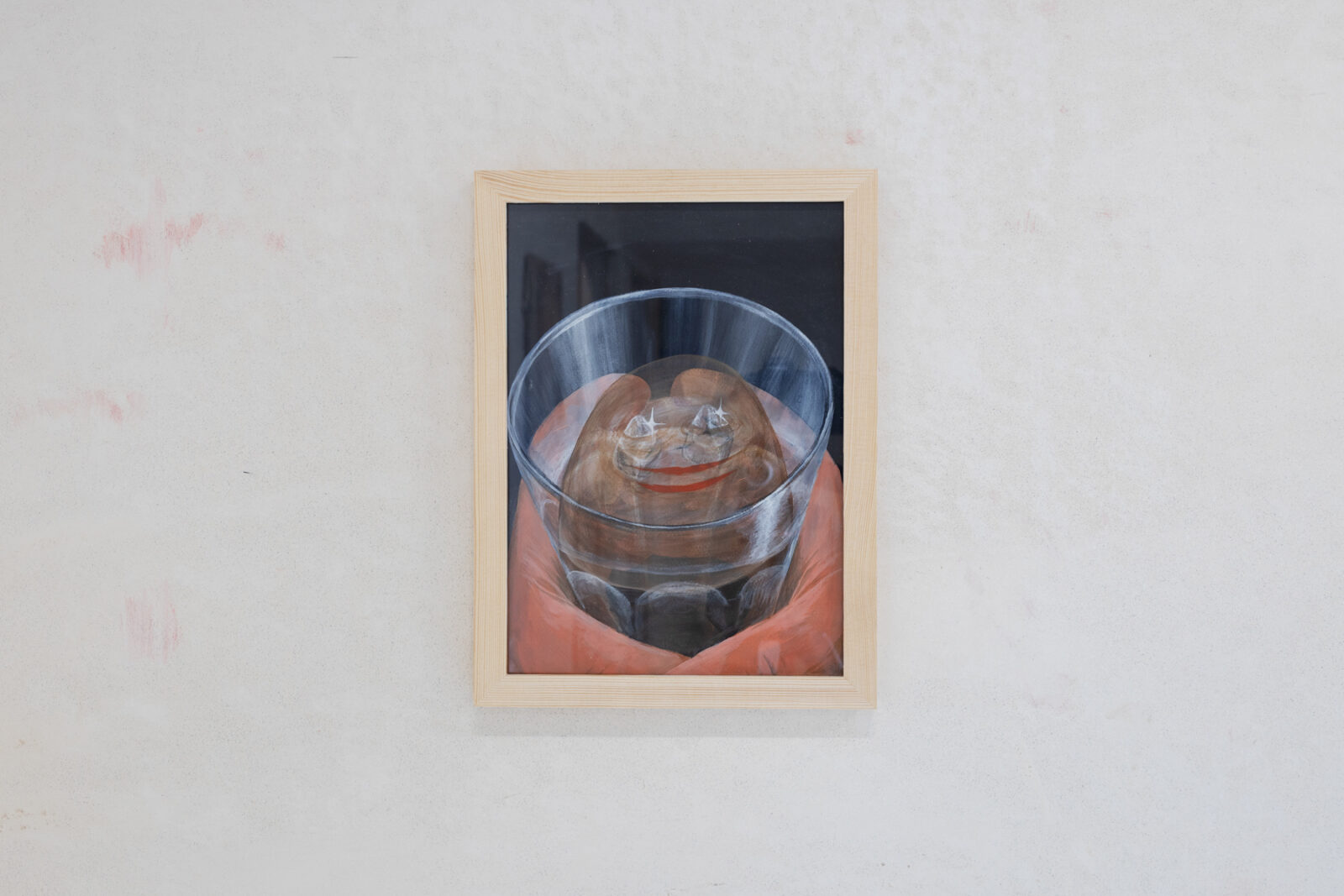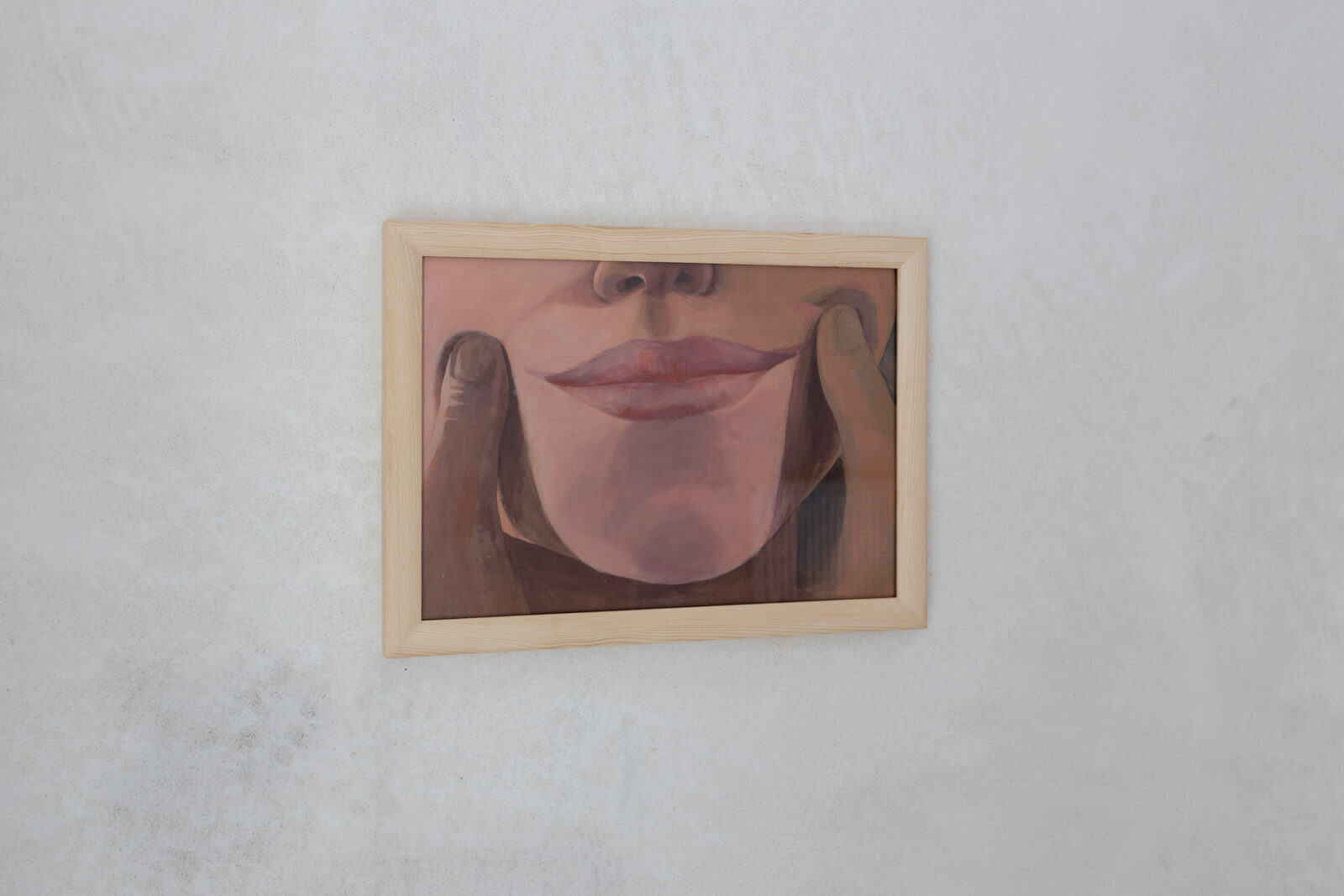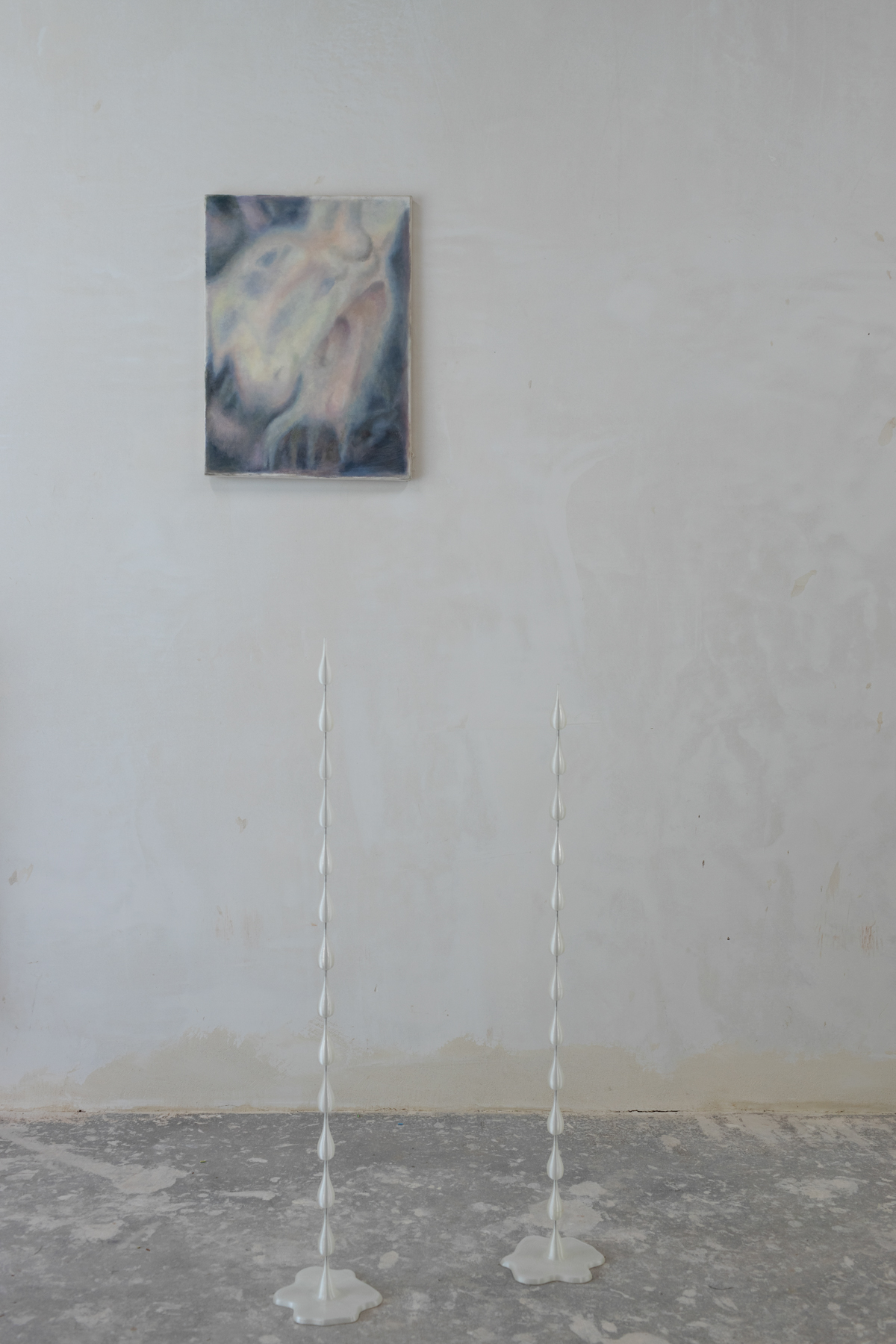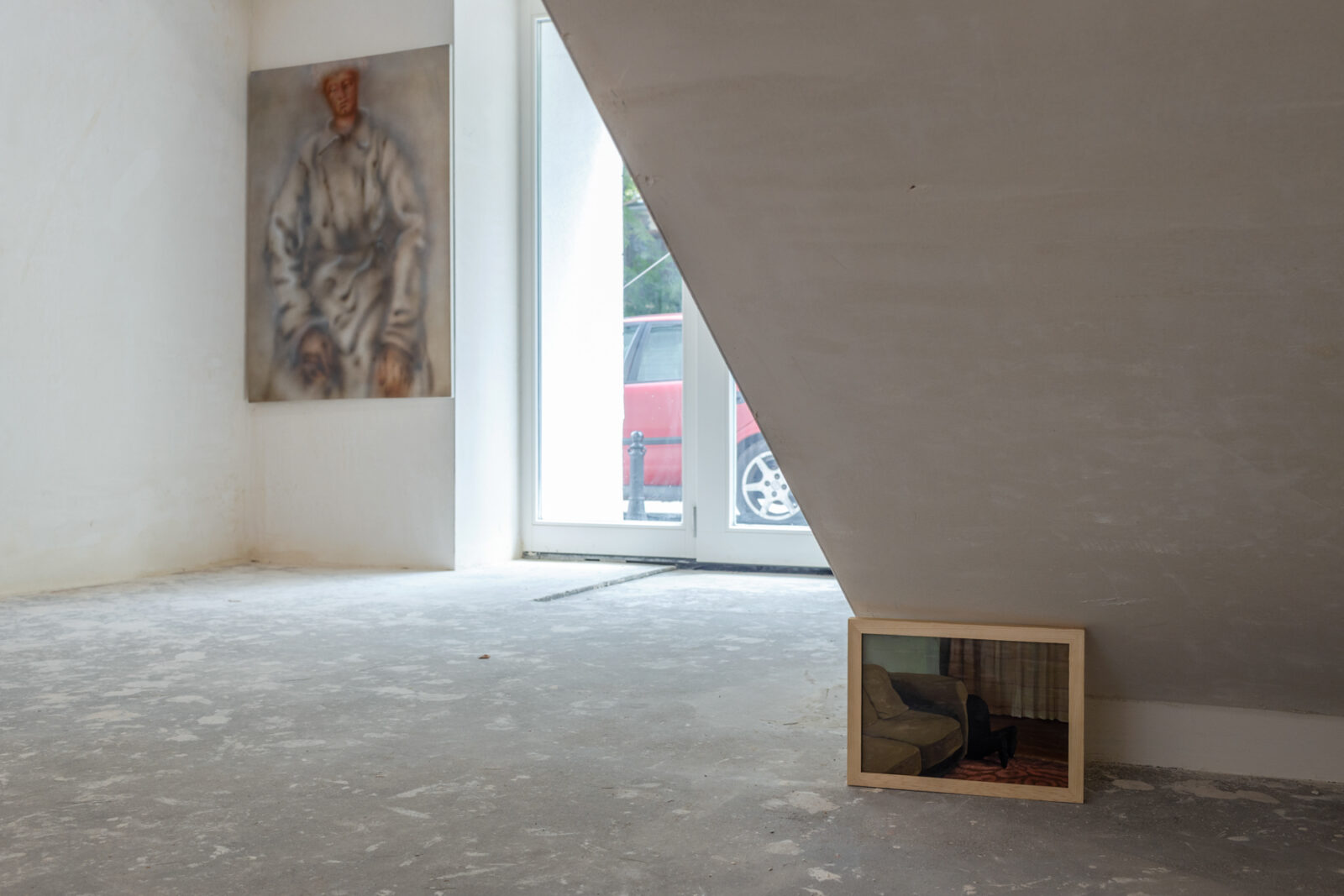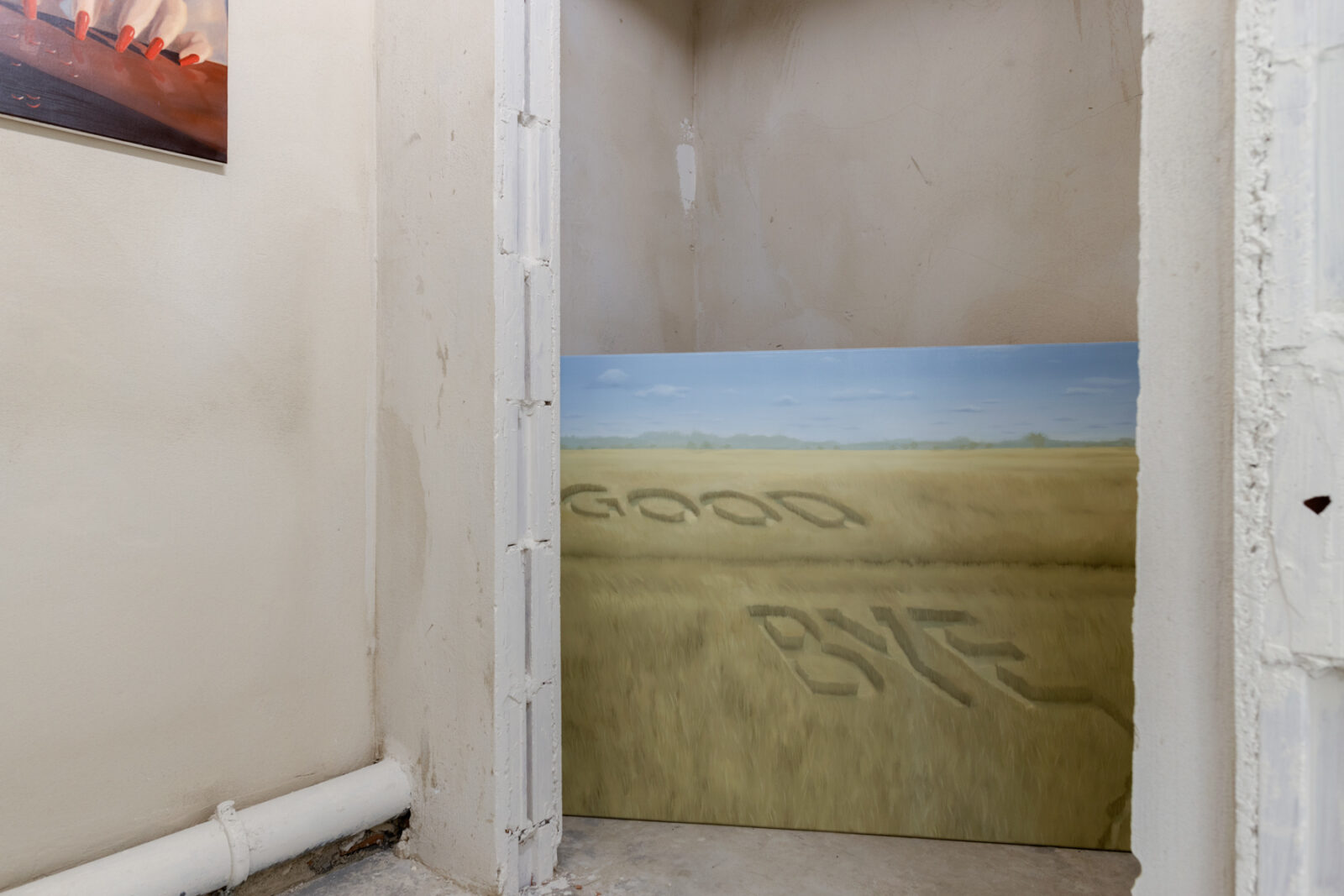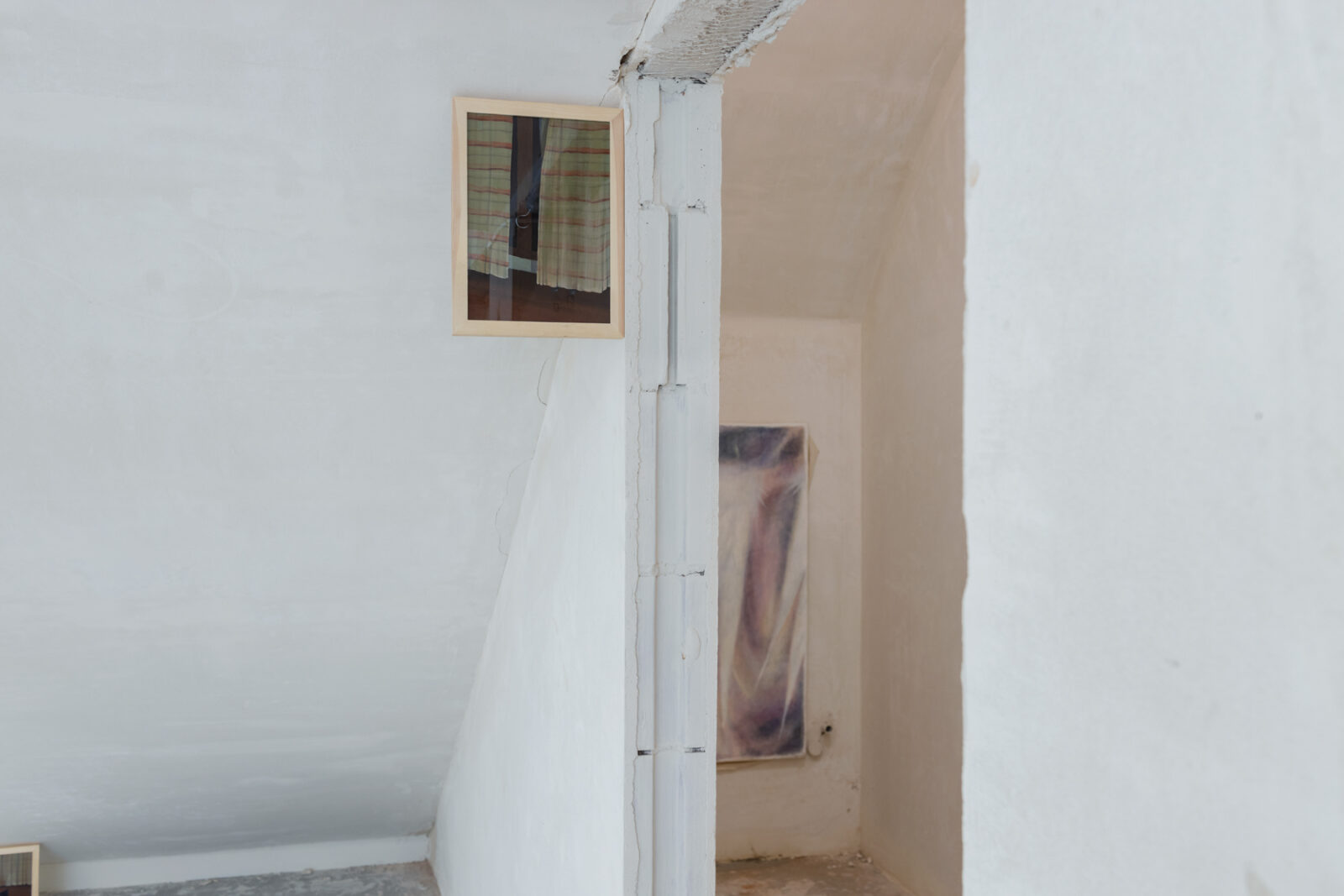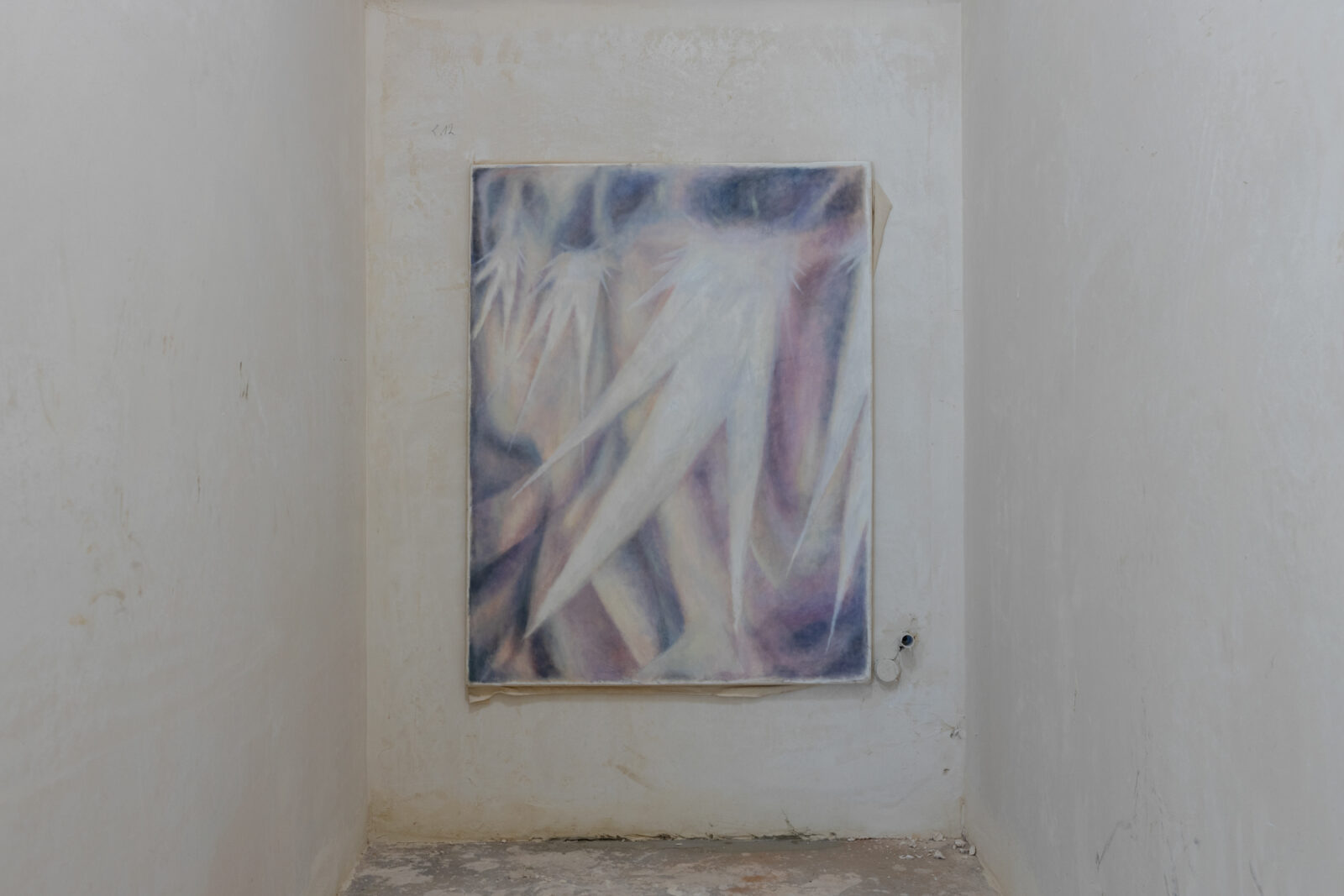That moment when you haggle with reality – you wish it were different, but it isn’t. But what if you really tried? Bought some cryptocurrency, joined a pyramid scheme, started to sell a miracle diet?
Attempts to overcome the confines of reality can take various forms. Sometimes we look for mental shortcuts, such as manifestation, positive or wishful thinking. In search of a miracle, we are tempted to ask for divine help, learn secret knowledge, sign a pact with a metaphysical force or being, which is usually burdened with serious risks. Dealing with the devil has tragic consequences – the price is higher than the benefits, and the ultimate loss is part of the story.
The works by Veronika Hapchenko, Paweł Olszewski and Alicja Pakosz illustrate a fascination with these desperate attempts to take shortcuts: everyday clashes of dreams with reality, small personal dramas, tempting illusions, projections of fantasies, quasi-theories and the existence of symbolic systems and occult movements in a seemingly rational world.
A reference to the vivid quote from Frank Herbert’s Dune in the title invokes the popular wisdom that warns against believing in silver bullets.
In a series of small paintings, which are typical of her everyday artistic practice, Alicja Pakosz uses pareidolia – a mental phenomenon that compels us to see familiar objects in random shapes. She illustrates attempts to enter into a private dialogue with reality by perceiving objective, random states of affairs as deliberate actions subject to negotiation and moral evaluation, as if interacting with another person or being. It is like trying to argue with the facts, which only makes matters worse for the arguer. As assumed by the artist, individual works making up the series can be subjectively interpreted by the viewer, but there is also a story behind each of them.
Extraordinary events and twists of fate often became part of popular culture and folk legends as manifestations of the Evil One. Otherwise, something like this could not have happened, could it?
Dealing with the devil is sometimes akin to autosuggestion. After all, we never know whether the pact has actually been concluded. Perhaps this is why it used to be so important to sign it with blood? Entering into deals with “evil forces” usually entails a disproportionately high price – a punishment for a moment of (promised) power or overcoming adversities in mortal life.
Veronika Hapchenko’s works come from her graduation series devoted to occult practices in the USSR: From Helena Blavatsky, a populariser of this kind of esoteric practices in Tsarist Russia in the second half of the 19th century, to the partially confirmed influence of occult practices on USSR dignitaries and attempts to use these movements in international diplomacy, to Trotsky’s private bodyguard known as Red Devil, who was wounded over thirty times and always returned to service.
Paweł Olszewski looks for simple expectations and dreams confronted with information noise and a multi-level language of communication. Overstimulation, or the effort put into weeding out fake contents, can result in a peculiar delirium in which facts are barely distinguishable from projection, and that which is obvious becomes an unattainable dream.
curator: Antoni Burzyński
artists:
Alicja Pakosz
Born in Tychy in 1996. She lives and works in Krakow. A graduate of the Faculty of Painting of the Academy of Fine Arts in Krakow in the studio of Prof. Andrzej Bednarczyk. In 2018/2019 she studied at Akademie der Bildenden Künste Nürnberg as part of the Erasmus + programme.
Paweł Olszewski
Born in Tarnów in 1996. He studies at the Academy of Fine Arts in Krakow, in the Painting Studio of Prof. Andrzej Bednarczyk and the Interdisciplinary Studio of Grzegorz Sztwiertnia and Zbigniew Sałaj, and at the Universität der Künste Berlin in the studio of Prof. Ina Weber as part of an international exchange programme. He works with painting, installation and objects.
Veronika Hapchenko
Born in Kiev in 1995. From 2013, she studied Stage Design at the National University of Cinema and Television in Kiev. In 2015, she began studies at the Faculty of Painting of the Academy of Fine Arts in Krakow, in the Painting Studio of Prof. Andrzej Bednarczyk and the Video and Photography Studio of Prof. Grzegorz Sztwiertnia and Prof. Zbigniew Sałaj. In 2019, as part of a student exchange programme, she studied at the Academy of Fine Arts in Vienna in the Post-conceptual Art Studio of Prof. Marina Grzinic.
At the moment I’m focused on researching the origins of the October Revolution and the esoteric and occult groups and motifs revived at the time, which had a significant impact on the revolutionists, artists, theatre directors, writers and poets. This taboo topic reveals the probable events and activities of people directly involved in the events of 1917.
“If Wishes…”
KubaParis
https://kubaparis.com/if-wishes-were-fishes-wed-all-cast-nets/
Tzvetnik
https://tzvetnik.online/article/if-wishes-were-fishes-we-d-all-cast-nets-group-show-at-krupa-gallery-wroclaw
Saliva.live
https://www.instagram.com/p/CT6tvmTInYb/



